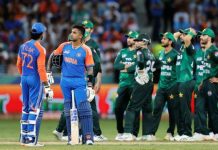The Pakistan Sports Board (PSB), once envisioned as the guardian and promoter of sports in the country, has sadly become a symbol of failure, mismanagement, and neglect. In what can only be termed as an alarming decline, sports in Pakistan—particularly hockey, our national game—are reportedly being stifled under the weight of corruption, nepotism, and ill-conceived policies. The PSB, instead of nurturing talent and encouraging athletic excellence, has turned into a bureaucratic hub of incompetence and favoritism.
The latest controversies surrounding the PSB paint a grim picture. An official allegedly imported from the Capital Development Authority (CDA), with little or no sports background, has further exacerbated the crisis. Under his tenure, policies that run counter to the development of sports have been implemented. The most outrageous among them is the reported hike in ground fees for hockey—a sport that is already struggling to stay afloat. This move has made it nearly impossible for aspiring players, many of whom come from underprivileged backgrounds, to access training facilities. In a country where hockey once brought glory on the world stage, this is nothing short of a tragedy.
Hockey, the pride of Pakistan’s sporting legacy, has been abandoned to the fringes. The country that once ruled the world in field hockey is now barely able to field competitive teams. Our stadiums are empty, infrastructure crumbling, and the morale of players at an all-time low. Rather than provide support, the PSB seems determined to drive the final nail into the coffin of our national game. Increasing ground fees in a country where youth struggle for access to quality sports infrastructure is akin to penalizing them for wanting to play.
Unfortunately, the decay is not limited to hockey. Other sports federations are equally mired in misgovernance, rife with internal politics, favoritism, and rampant corruption. Positions in federations are often filled not on merit, but on connections and affiliations. Funding meant for athlete development is allegedly siphoned off, and transparency is nowhere to be seen. Talented athletes are forced to either abandon their dreams or seek opportunities abroad.
The root cause of this rot lies in the absence of vision, accountability, and professionalism within the PSB. Instead of appointing experienced sports administrators, positions are handed to individuals with little understanding of the dynamics of modern sports. Their priorities are contracts, perks, and influence—not the players, the facilities, or the sport itself.
It is imperative that the Prime Minister, as the patron-in-chief of sports in Pakistan, takes urgent notice. Hockey, in particular, needs immediate intervention. A comprehensive inquiry into the affairs of the PSB must be launched, especially regarding recent policy decisions that have alienated young athletes. There must also be a reassessment of who is entrusted with leading sports institutions.
Saving sports in Pakistan is not just about medals or trophies—it is about giving the youth hope, discipline, and an outlet for their talents. If the current state of affairs continues, we risk losing a generation of athletes and the pride of our sporting identity. It is high time the government acts before Pakistan becomes a graveyard of lost sporting potential.

















